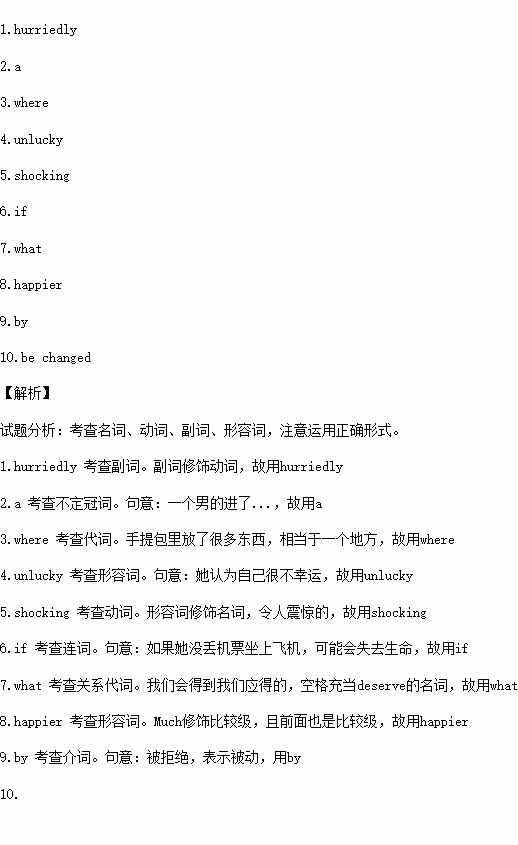题目内容
A woman was on her way to the airport 1. (hurry). She was so absorbed in her own thoughts that she was not aware she was going on a different route. Suddenly, 2. man went inside the cab and took her handbag 3. she placed her visa, passport and all her money for the trip. She kept on thinking how 4. (luck) she was to be in that situation. That very same night, she heard a piece of 5. (shock) news. Flight 230 crashed! It was the plane that she was supposed to board into. 6. she had not lost her precious belongings, she could have lost something far more important—her life!
Sometimes bad things really happen. We fail in our exams, or get rejected by others . There are times when nothing seems to go our way. So what do we do about it? We must take all these frustrations out of our chest and start all over again with the consistent faith that we will get 7. we deserve.
If you failed in the exams, maybe you’d be more successful and much ___8.____(happy) in another field. If you were rejected 9. your friend, there are plenty of others out there who are much more deserving of your love and affection. Don’t waste your time and energy on things that can’t 10. (change).
 阅读快车系列答案
阅读快车系列答案
